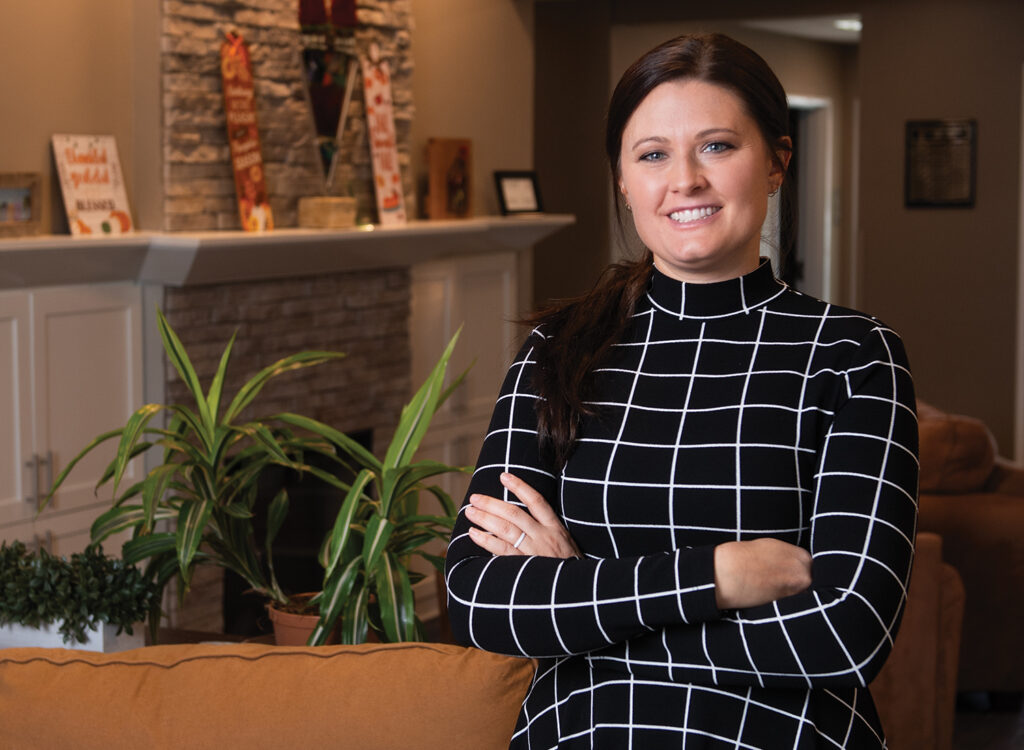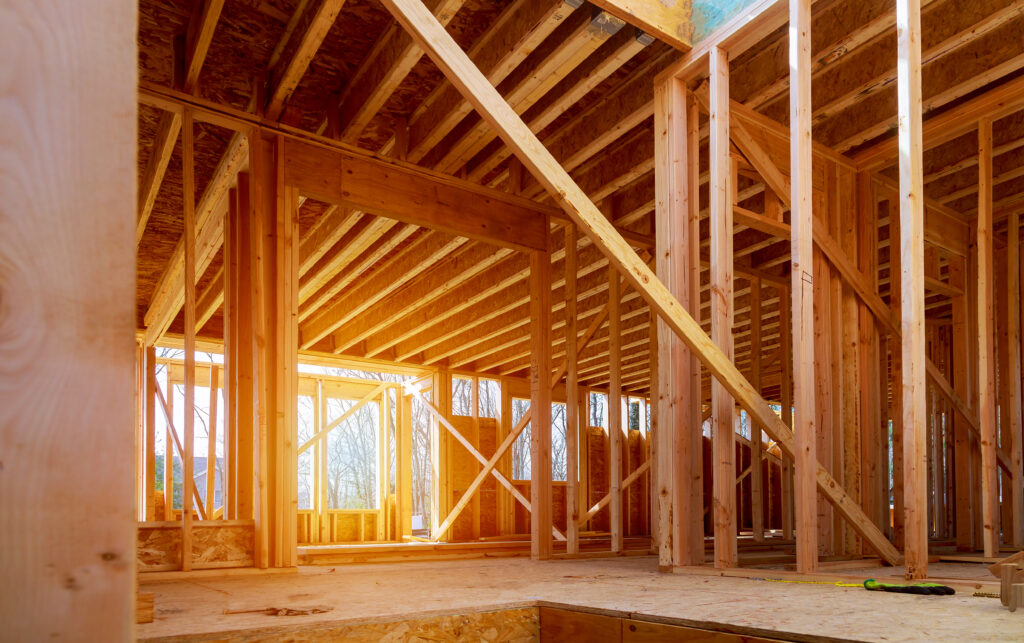Experts talk about importance of affordable housing in metro area
‘When we don’t have housing affordability, our communities aren’t going to grow,’ says one panelist

KATHY A. BOLTEN Dec 15, 2021 | 9:00 pm
7 min read time
1,607 wordsBusiness Record Insider, Economic Development, Housing, Real Estate and DevelopmentIn October 2019, 1,227 residences priced at $199,999 or lower were listed for sale in the Des Moines area.
Two years later, the availability of moderately priced homes for sale had shrunk dramatically. Just 508 homes priced at $199,999 or lower were listed for sale, 58% fewer than in 2019, data from the Des Moines Area Association of Realtors shows.
“There has been such a low inventory and such a big demand that [properties] are getting multiple offers,” said Jorge “Junior” Ibarra, CEO of Ibarra Realty Group in West Des Moines. Sale prices of houses inched upward as potential buyers placed competing bids on properties, often hiking the price enough to push moderate-income buyers out of the competition, he said.
In addition, offers typically weren’t considered from potential homebuyers receiving federal assistance for down payments, Ibarra said.
“That was a big disadvantage for a lot of people who were looking for affordable houses this past season,” he said. “I suspect those same issues will be happening again in 2022.”
Ibarra was among six people who participated in the Business Record’s third Project515, a series of virtual events designed to take a deep look into specific sectors of the real estate industry. The first discussion was held in June and focused on the retail and service industries. The second, held in August, focused on the office sector. The final discussion of 2021 was held Dec. 2 and focused on affordable housing.
Other panelists included Matt Hauge, director of communications and community outreach for the Polk County Housing Trust Fund; Christine Gordon, housing planner for the city of West Des Moines; Wade Hiner, president, sales and marketing at Destiny Homes; Teree Caldwell-Johnson, CEO at Oakridge Neighborhood and Oakridge Neighborhood Services; and Mark Wilson, branch manager at Wells Fargo Home Mortgage.
A May 2019 workforce housing study showed that Polk, Dallas, Warren and Guthrie counties need to add 33,592 owner-occupied housing units of all types as well as 23,577 new rental units before 2038.
The study also showed that 70% of the area’s new households would have annual incomes of less than $75,000. That means that more than half of new owner-occupied homes need to be priced below $175,000 and three-fourths of new rental units need to charge monthly rents of less than $1,250, according to the yearlong study sponsored by Capital Crossroads, the Polk County Housing Trust Fund, Des Moines, Ankeny, Clive, Norwalk, Urbandale and West Des Moines.
While providing a new owner-occupied housing unit for under $175,000 may have been challenging to achieve two years ago, it’s nearly impossible today, say people in the home building industry.
The costs of building materials have increased an average of 26%, according to the National Association of Home Builders. Low interest rates for 30-year home mortgages have attracted more potential homebuyers into the market. The increased demand for new and existing homes has inflated sale prices. Supply chain issues and a shortage of skilled workers have also caused new home prices to increase.
“The construction industry has never before been hit with so many concurrent issues,” said Hiner, who has been in the business for more than 35 years. “I’ve never seen a market like this.”
In 2018, Destiny Homes created a line of new houses priced in a range that middle-income wage earners could afford. One of the houses – including the lot – sold for $195,000, Hiner said. “Today, we can’t touch that for $295,000.”
Much is at stake if communities are unable to provide rental and owner-occupied housing that is priced affordably, panel members said. Existing employers will stay in the Des Moines area and expand their business when workers are able to find places to live that they can afford. New companies will be attracted to the area for the same reason, panelists said.
“When we don’t have housing affordability, our communities aren’t going to grow, they’re not going to thrive,” Caldwell-Johnson said. “Quality of life will not be equitable across the board. Housing is a critical building block to our sustainability and to individual livelihood.”
The city of West Des Moines is in the process of starting new initiatives to help people with moderate incomes buy houses or make improvements to existing homes. The city is partnering with area banks to provide money for a down payment assistance program. It is also providing funds for a home improvement program and a rental acquisition program.
The programs are all targeted in the historic West Des Moines area, which is roughly bounded by Grand and Railroad avenues and First Street.
“We need to offer different kinds of housing so we can attract all different kinds of people,” Gordon said. “That’s why it’s important to us.”
More from Project515 panelists
The following are responses from the six Project515 panelists to questions on affordable housing.
When you hear the phrase “affordable housing,” what does it mean to you?
Teree Caldwell-Johnson, CEO at Oakridge Neighborhood and Oakridge Neighborhood Services
“The federal government actually defines housing as affordable when it consumes no more than 30% of an individual’s household income. And to put that into perspective, in Polk County, 40% of our total population and 53% of our African American population are cost-burdened renters, which means they are paying more than 30% of their annual household income toward housing.”
Matt Hauge, director of communications and community outreach for the Polk County Housing Trust Fund
“We’ve been having so many conversations about essential workers, and you know, many of our essential workers for the people who are struggling in this market. We talk about caring professions like child care workers and folks who are home health aides or caring for seniors. We talk about restaurant workers and retail workers. These are folks who are struggling to basically be able to make ends meet on the real wages that are being paid in our region today. So affordable housing is essential for these essential workers. It’s also essential for you and me. … We’re all getting older. Your home is probably your largest retirement asset. We’re thinking constantly about the cost of housing for seniors and how to care for people through all phases of life. It’s also kids starting out. We’ve had very involved people in this movement talk about the fact that their kids are trying to buy their first house in this metro area and [they] can’t buy in the community where [they] grew up because prices have climbed to a place where they are out of reach. So it’s a real issue for real people.”
Housing prices are inching upward. In October, the median sales price of a single-family home in Iowa was $235,000. What types of household incomes are needed to purchase these houses?
Mark Wilson, branch manager at Wells Fargo Home Mortgage
“That’s been a big challenge as we move forward and see the medium home prices go up. The [household income] range really depends on how much other debt [borrowers] have. If you’re looking for a house in the $200,000 range, you probably need to have [an annual household income of] $52,000 or above. If you’re getting a house in the $300,000 range, you’re moving to more of that household income range of $70,000. … As prices continue to rise, there are fewer folks that will qualify [for a home loan]. Fannie Mae and Freddie Mac have come out with programs to try and address that. … We continue to work on down payment assistance programs because that seems to be the largest barrier to homeownership.”
What are your predictions for homebuying in the coming year? Are prices going to continue to climb?
Jorge “Junior” Ibarra, CEO of Ibarra Realty Group
“It’s already predicted that because of the lack of inventory, prices in our metro will go up 16%. Again. That can’t continue to happen. That’s not healthy. Unless something changes, I see it becoming a very difficult year, especially for the population with the lower income levels.”
When a company comes to West Des Moines looking to build a new headquarters or open a new store, do they ask about the availability of housing?
Christine Gordon, housing planner for the city of West Des Moines
“Absolutely. They also want to know that if they’re going to come to our community, that there are people that they can hire. They also want to know about the education [level] of [potential employees]. They want to know of those statistics. … So those are definitely things that employers are looking at, and that’s good. They need to care about where their employers are living … day care. All those things affect me as an employee and how well I’m going to do my job. If I’m thinking about something else or I’m worried about my housing and how I’m going to pay for it, that affects how I am as an employee. These are definitely topics that employers are asking about and should be asking about.”
What’s the prediction for homebuilding in the coming year?
Wade Hiner, president, sales and marketing at Destiny Homes
“I really feel like it’s going to be another very strong year. I don’t see the challenges of the supply chain going away anytime soon. The best friend we have right now is [low] interest rates because that affords that buying power.”
Watch Project515 video
Even before the start of the pandemic, Iowa — and the U.S. — faced an affordable housing challenge. As the pandemic lingered, the challenge became more acute. In the Business Record’s third Project515 virtual event, we talked to experts about issues related to housing affordability.
To watch, go to businessrecord.com/video.









